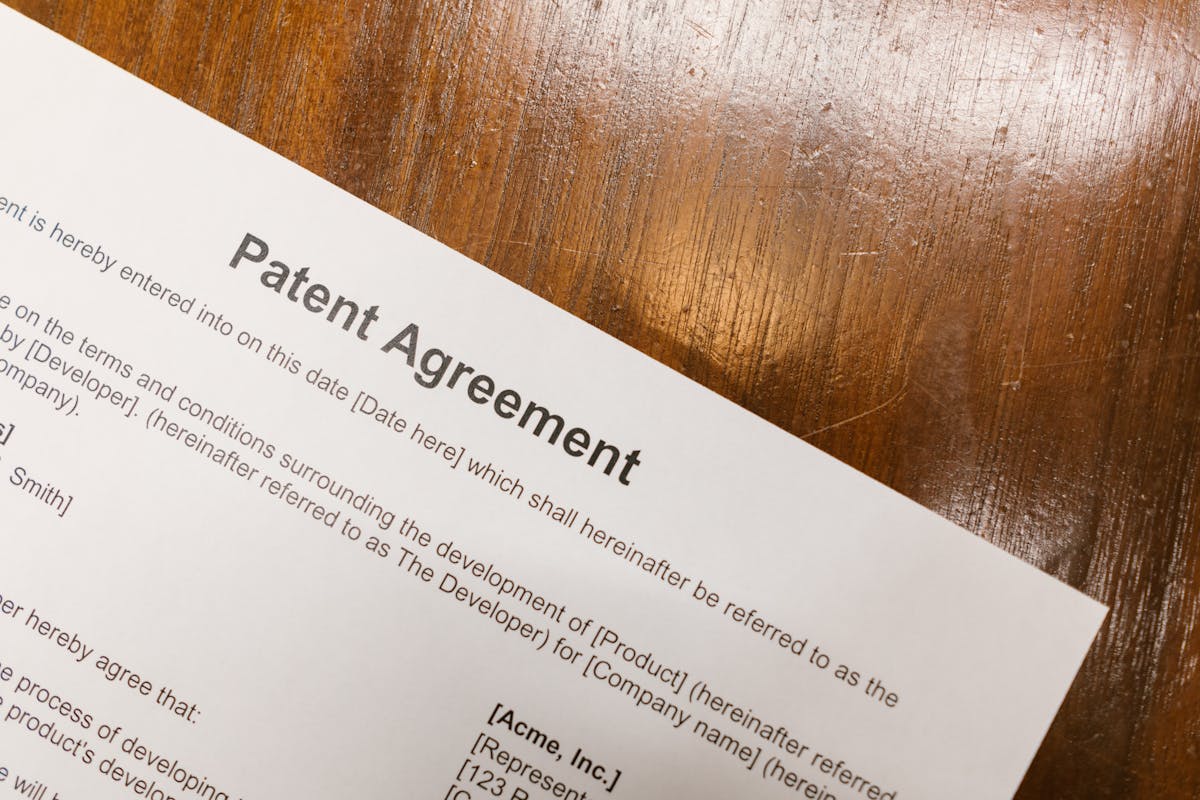Understanding the Process of Patent Filing Through Houston Intellectual Property Lawyers
In today’s fast-paced world of innovation, the role of Intellectual Property (IP) lawyers in Houston in the patent filing process has become increasingly pivotal. These legal professionals provide indispensable guidance through the labyrinth of patent laws and regulations. By doing so, they help inventors secure their intellectual property rights, thereby promoting a fertile ground for creativity and innovation. Yet, the complexity of this process often remains a mystery to many. The subsequent discussion aims to shed light on this intricate process, its importance, and the benefits that inventors stand to gain with the expert support of Houston IP lawyers.
The Importance of Intellectual Property
Intellectual Property (IP), a cornerstone of modern business, represents a critical asset in today’s knowledge-based economy. The protection of these intangible assets, such as inventions or brand names, is essential to the maintenance and enhancement of a company’s competitive position and, by extension, its economic growth.
IP rights incentivize innovation by providing legal protection to inventors, safeguarding their creations from potential infringement. This protection not only encourages the invention process but also facilitates the sharing of knowledge and accelerates technological advancement.
Apart from fostering innovation, intellectual property also plays a crucial role in attracting investment. Investors often view robust IP protection as a sign of a company’s potential for long-term growth. A strong IP portfolio can therefore serve as a significant source of corporate value and economic advantage.
Understanding Patent Laws
Maneuvering the labyrinth of patent laws is a fundamental step in the patent filing process. The complexity of these laws lies in the extensive patent terminology employed, as well as the variety of patent types available. Understanding these two elements is pivotal for a successful patent application.
Patent terminology refers to the specific language used within patent laws. This ranges from relatively simple terms such as ‘applicant’ and ‘invention’, to complex phrases like ‘prior art’ and ‘patentability’. Mastery of this terminology is essential as it guarantees accuracy and clarity when drafting a patent application.
Patent types, on the other hand, are classifications of patents based on the nature of the invention. The three primary types are utility patents, design patents, and plant patents. Utility patents protect the functional aspects of an invention, design patents guard the aesthetic elements, and plant patents cover asexually reproduced plants. The type of patent chosen has significant implications on the scope of protection granted.
Precision and attention to detail are paramount when traversing patent laws. Any misstep could lead to costly mistakes, thereby jeopardizing the entire patent filing process. By understanding the terminologies and types of patents, one can skillfully navigate this intricate legal terrain.
Role of Intellectual Property Lawyers
Maneuvering through the convoluted world of patent laws can be a formidable task for inventors. This is where the role of Intellectual Property (IP) lawyers becomes critical. They bring legal expertise to the table, making the process more navigable and ensuring that the client’s inventions are adequately protected.
The client relationship is an essential aspect of an IP lawyer’s role. They act as trusted advisors, helping clients understand the complexities of patent laws and guiding them through the entire process. They provide an extensive service, from conducting a thorough analysis of the invention to determine its patentability, to drafting and filing the patent application.
IP lawyers also lend their legal expertise in negotiating and drafting agreements related to IP rights. This includes licensing agreements, confidentiality agreements, and purchase or sale of IP rights. Their analytical approach helps in identifying potential legal risks and formulating strategies to mitigate them.
Moreover, they represent clients in litigation involving IP rights. They use their legal acumen to defend the client’s interests, whether it involves enforcing a patent right or defending against infringement claims. Consequently, IP lawyers play an indispensable role in the patent filing process, making it less formidable for inventors.
Steps in The Patent Filing Process
Understanding the steps in the patent filing process is essential for successful protection of intellectual property. This process begins with an initial patent consultation, followed by the meticulous task of drafting the patent application. Each of these stages requires careful consideration and legal expertise to guarantee the strongest possible patent protection.
Initial Patent Consultation
Maneuvering the initial stages of the patent filing process can often seem intimidating, especially to newcomers. However, an initial patent consultation with a Houston intellectual property lawyer can demystify the process and provide a clear roadmap ahead. The consultation provides an opportunity to evaluate patent eligibility, which is an essential first step in the patent filing procedure.
During the initial consultation, the attorney assesses the invention’s uniqueness and applicability under the United States Patent and Trademark Office’s (USPTO) criteria. This assessment of patent eligibility helps to prevent unnecessary expenditure and effort on ideas that may not qualify for a patent under the existing legal framework.
The benefits of an initial consultation extend beyond the technical evaluation of an invention. It also helps the inventor to understand the complexities of the patent filing process and the potential hurdles that may be encountered. In addition, the lawyer can suggest alternate intellectual property protection strategies if the invention does not qualify for a patent.
In essence, an initial patent consultation provides a solid foundation for the patent filing process. It guarantees that inventors have a clear understanding of their invention’s patent eligibility and the broader patent landscape, thereby setting the stage for the subsequent steps in the patent filing process.
Drafting Patent Application
Initiating the journey of drafting a patent application necessitates a thorough and meticulous approach. This process goes beyond merely describing an invention; it involves setting forth the legal parameters of the proposed patent protection. Drafting strategies are an integral part of this phase, as they guide the composition of an application that accurately portrays the invention while guaranteeing it meets the regulatory standards set by the patent office.
Diverse application types exist in the patent world, each serving a specific purpose. Provisional applications, for instance, offer an initial means of protecting an invention, while non-provisional ones provide full patent rights. The choice between these types is not random but must align with the inventor’s strategic goals and the invention’s readiness level.
The drafting process demands a high level of legal proficiency. It’s a fine balancing act between providing enough detail for the invention to be thoroughly understood and avoiding over-disclosure that might limit the patent’s scope. This balance guarantees that the patent, once granted, provides the broadest possible protection against infringement.

Common Challenges in Patent Filing
The journey towards securing a patent is often fraught with numerous obstacles, making it a challenging task for many inventors and businesses alike. One such hurdle includes conducting thorough patent searches. This phase is essential to guarantee that the invention is truly unique and does not infringe on any existing patents. However, these searches require extensive knowledge of patent databases and classification systems, making it an intimidating task for those not familiar with the landscape.
Additionally, adhering to filing deadlines presents another significant challenge. The United States Patent and Trademark Office (USPTO) has stringent timelines that must strictly be followed, from provisional applications to non-provisional filings. Missing these deadlines can result in loss of patent rights, causing significant setbacks.
Moreover, the complexity of the patent filing process necessitates a deep understanding of patent law and technical expertise, which many inventors may lack. Misinterpretations or inaccuracies in the patent application can lead to rejection, requiring arduous revisions or even refiling.
How Houston Lawyers Simplify Filing
Houston-based patent lawyers known as intellectual property lawyers in Houston provide invaluable assistance in the complex process of patent filing by adeptly maneuvering through intricate legal formalities. They employ their extensive legal knowledge and expertise to optimize patent documentation, ensuring its completeness, accuracy, and compliance with patent law. Through their specialized skills, they bring simplicity and efficiency to the patent filing process, greatly mitigating the risks and challenges often encountered by inventors and businesses.
Navigating Legal Formalities
Although the patent filing process can seem complicated and filled with legal jargon, experienced attorneys in Houston have honed a method that simplifies the procedure. They are adept at maneuvering through the intricate maze of legal requirements and stringent filing deadlines, ensuring a smoother patent application process for inventors and businesses.
The patent filing process is a labyrinth of statutes, rules, and regulations. Houston attorneys, with their extensive experience and in-depth knowledge, expertly traverse this labyrinth, decoding the legal language and intricacies. They work diligently to comprehend the federal and state laws that dictate patent filings, transforming the complex into the comprehensible for their clients.
These experienced lawyers are adept at managing the filing deadlines, a critical aspect of the patenting process. Missing these deadlines can lead to a forfeiture of rights, an outcome they diligently avoid. They establish a systematic approach to monitor and meet these deadlines, ensuring the rights of the inventors are protected.
Optimizing Patent Documentation
Moving beyond the intricate legal formalities, experienced lawyers in Houston also streamline the patent documentation process, making it less intimidating for inventors and businesses. They bring their expertise to bear on ensuring documentation accuracy, which is paramount in patent filing. Any inaccuracies or inconsistencies in the documentation can lead to rejections from the patent office, causing delays and potential loss of patent rights.
Houston lawyers pay meticulous attention to patent claims, the very essence of a patent application. These claims define the boundary of the invention, the scope of the protection sought. As a result, they need to be crafted with precision, yet broad enough to prevent others from easily designing around the patent.
The lawyers also work on abstracts, specifications, and drawings, ensuring each component aligns with the patent claims and adheres to the patent office guidelines. They thoroughly analyze each detail, scrutinizing for potential pitfalls and rectifying them before submission.
With their intricate knowledge of patent law and the patent office’s expectations, these intellectual property lawyers optimize and simplify the patent documentation process. This allows inventors and businesses to focus on innovation rather than being bogged down by the complexities of patent filing.
Case Studies: Successful Patent Filings
Numerous instances of successful patent filings serve as shining examples of how inventors and businesses have skillfully navigated the patent process to protect their intellectual property rights. Importantly, these examples underline the significant innovation impact and the verifiable patent success that can be achieved with a judicious and meticulous approach towards patenting.
Consider the case of a Houston-based tech start-up that patented a unique cloud computing algorithm. Their patent success was not a mere coincidence, but a result of thorough patent research, precise documentation, and strategic legal counsel. By patenting their innovation, the firm has effectively safeguarded its intellectual property rights, thereby securing its market position and enhancing its competitive edge.
Similarly, a local inventor with a new water purification technique experienced the transformative innovation impact of a successful patent filing. After securing the patent, the inventor’s technique has not only revolutionized the water treatment industry but has also led to an array of new opportunities for the inventor, including licensing deals and lucrative partnerships.
These cases emphasize the importance of a well-executed patent filing process in achieving patent success, supporting continuous innovation, and maximizing the innovation impact.
Frequently Asked Questions
What Are the Costs Associated With Filing a Patent in Houston?
The costs of filing a patent in Houston primarily comprise filing fees assigned by the United States Patent and Trademark Office and attorney rates for legal services rendered by intellectual property lawyers.
How Long Does the Patent Filing Process Typically Take in Houston?
The patent filing process duration in Houston largely depends on patent timeline factors. Generally, it spans from 1 to 3 years, providing a thorough filing process overview, including research, preparation, submission, and patent office review.
Are There Any Additional Requirements for International Patent Filings?
Yes, international patent filings have additional requirements. They must comply with the Patent Cooperation Treaty (PCT). This includes specific formatting, language requirements, and additional fees, among others, which vary by country of filing.
What Happens if My Patent Application Is Initially Rejected?
If your patent application is initially rejected, you can appeal the decision or make necessary application adjustments. Engaging in patent appeals requires careful legal strategy to successfully argue your case and secure patent approval.
Can a Houston Intellectual Property Lawyer Help With Patent Disputes and Litigation?
Yes, a Houston intellectual property lawyer provides expert legal representation in patent disputes and litigation, including instances of patent infringement. Their expertise guarantees legally proficient, detailed-oriented, and analytical handling of such complex matters.


